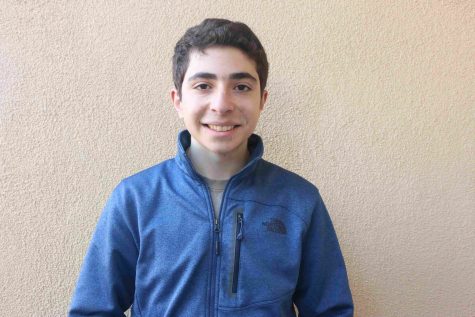Rarely do local governments intervene in the federal courts, but a controversial case being considered by the Supreme Court regarding immigrants’ rights has prompted San Mateo County to take a stance.
On Feb. 10, San Mateo County filed a “friend of the court” brief on the case Jennings v. Rodriguez. A total of 20 cities and counties nationwide have filed a brief asking the court to grant constitutional rights to undocumented immigrant detainees in all 50 states and the District of Columbia.
“We want to have our voice heard and are proud to join our colleagues in other jurisdictions in standing up for every person’s constitutional rights,” said San Mateo County Supervisor Don Horsley. “The question isn’t whether we think that a person should or should not be deported, but about ensuring that we don’t allow an unnecessary detention practice.”
The brief issued by the county asked the U.S. Supreme Court to uphold the decision of the 9th U.S. Circuit Court of Appeals on the case Jennings v. Rodriguez. The respondents include Alejandro Rodriguez and other undocumented detainees who claimed that their prolonged detention without a bond hearing violated their constitutional rights. The 9th U.S. Circuit Court of Appeals ruled in favor of Rodriguez, and the Supreme Court will either uphold or reverse the decision of the lower courts. The court will also consider if non-citizens on American soil are subject to constitutional rights and due process.
The county’s decision to file the brief in support of constitutional rights for immigrant detainees has been met with widespread backing from constituents, specifically youth. But the county’s intentions in filing this brief are not purely on moral or legal grounds. Their decision was also driven by the fact that prolonged detentions have also proven to be extremely costly for taxpayers.
When undocumented immigrants wait countless months for a bond hearing, the county must pay for certain social services for individuals affected by the extended absence of the detainee. These services provided by the county include medical care, foster care, and housing.
“It’s not uncommon for detainees held without bail to prevail against deportation proceedings and ultimately be released after waiting months or years for a hearing on their lawful status,” said County Counsel John Beiers. “By that point, the effect of their absence has already rippled through the community.”
Carlmont students have rallied behind the efforts of the county and advocated for the expansion of constitutional rights and legal privileges to undocumented immigrants.
“Constitutional rights are part of a moral code meant to protect justice and equality, but some people have started to warp them into privileges that are withheld from those they don’t like or agree with,” said junior Kiran Boone. “If we truly value equality, then anyone within our walls should be treated with fairness.”
Others believe that the Constitution was created for universal application and should not apply only to U.S. citizens but rather extend to foreigners and undocumented immigrants as well.
“The 14th amendment provides rights to anyone in the world. To defy the basic rights of the Constitution is to betray the desires of our Founding Fathers,” said sophomore Joseph Bazarsky.
Issues pertaining to undocumented immigrants also directly affect the Carlmont community. According to the Center for Migration Studies, over 50,000 illegal immigrants lived in San Mateo County as of 2013, and many of them had children enrolled in public schools.
“Issues pertaining to immigrants are extremely relevant [to Carlmont] as we strive to make sure that everyone feels welcome here regardless of where they’re from or what legal issues they might have,” said Boone.
According to the Silicon Valley Community Foundation, the immigrant population in San Mateo County has increased by almost eight percent in just the past 10 years. San Mateo County has already taken measures to safeguard undocumented immigrants in recent years due to these surges in migration. In May 2014, San Mateo County became a sanctuary county, allowing cities in its jurisdiction to harbor undocumented immigrants without reporting them to federal officials.
However, the Trump administration has vowed to crack down on illegal immigration. In a recent executive order enacted by the president on Jan. 25, Immigration and Customs Enforcement would prioritize the deportation of undocumented detainees. Furthermore, President Donald Trump also plans to weaken sanctuary cities and counties by possibly halting federal funds to local governments that harbor undocumented immigrants. Many fear that legislative action by the federal government could drastically change the climate of illegal immigration in San Mateo County.
Amidst the uncertainties surrounding the status of undocumented immigrants and detainees in the Bay Area, the Carlmont community remains optimistic.
“While it’s true that there are many different political opinions represented on campus, I think it’s safe to say that students want to help their peers in whatever way possible, making Carlmont a safe space for immigrants, legal or not,” said Boone.


